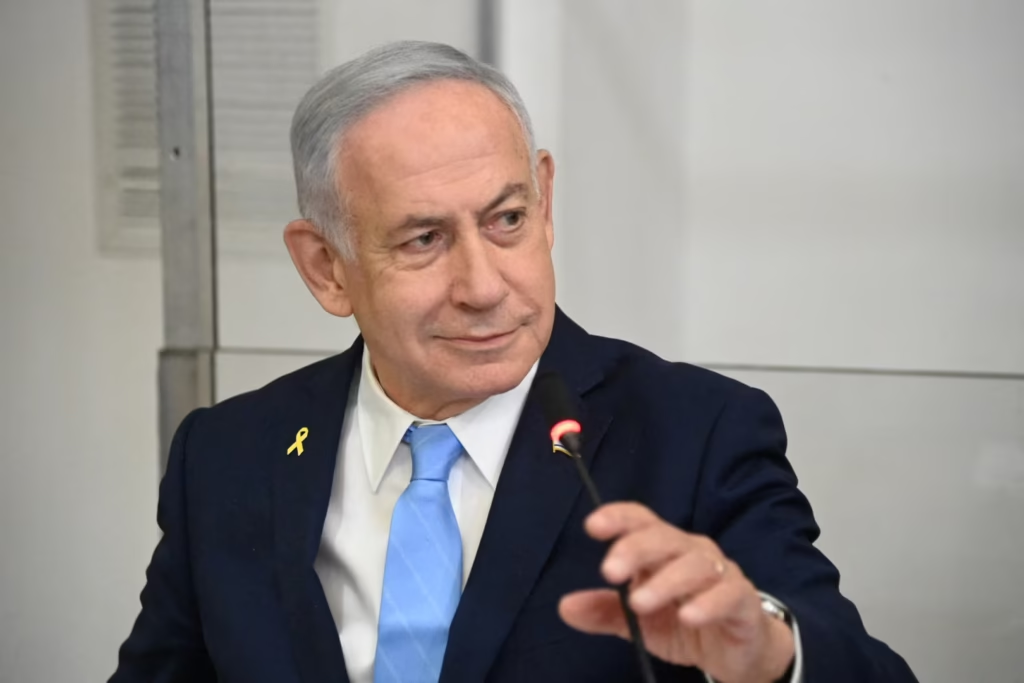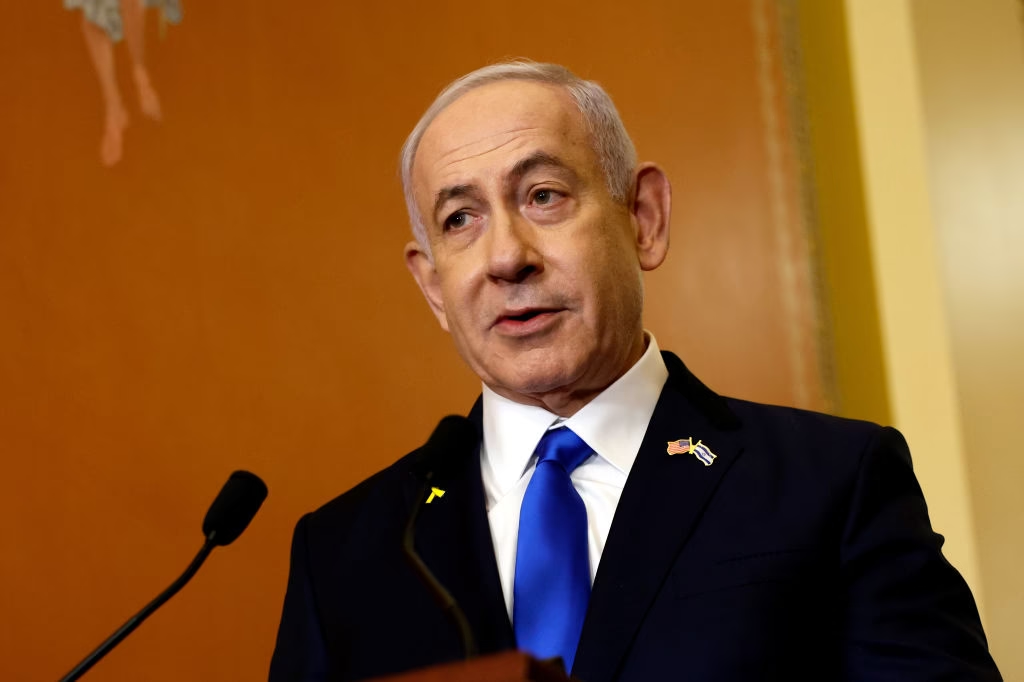
In a dramatic and unprecedented move, Israeli Prime Minister Benjamin Netanyahu directly monitored the Israeli Air Force’s (IAF) recent air strike on Qatar from the fortified command center of the Shin Bet security agency. This high-level involvement highlights the operation’s strategic significance and signals growing tensions in the Middle East.
The air strike targeted what Israel claims were terrorist infrastructure facilities in Qatar, allegedly used to coordinate attacks against Israeli interests. Reports reveal that Netanyahu personally followed the operation in real-time, underscoring his determination to assert Israel’s hardline security stance amid volatile regional developments.
Netanyahu’s Direct Role: A Strategic Shift
Prime Minister Netanyahu’s decision to oversee the air strike from Israel’s Shin Bet bunker reflects the operation’s critical nature. Typically, military actions are coordinated by senior defense officials, with political leaders receiving regular briefings. However, Netanyahu’s personal involvement highlights how seriously Israel views Qatar’s role in the regional security puzzle.
“This was not a routine operation,” an unnamed Israeli defense source told The Jerusalem Post.
“Netanyahu’s presence in the Shin Bet bunker during the attack signals the highest level of political-military coordination.”
According to The Financial Times, Netanyahu dialed into the Tuesday meeting in Washington, where U.S. and EU officials were discussing strategies to cut Russian crude oil imports through India and China. His concurrent monitoring of the Qatar operation suggests a broader geopolitical agenda tying Middle Eastern security directly to global economic pressure points.
Why Target Qatar?
Israel has long accused Qatar of covertly supporting armed groups that carry out attacks against Israeli targets. These groups allegedly operate with logistical and financial support from Qatar under the pretext of humanitarian aid programs.
“Qatar plays a dangerous double game,” an Israeli security official explained.
“They publicly promote diplomacy but privately fund terror networks.”
While Qatar vehemently denies these allegations, asserting its role as a neutral diplomatic mediator in the region, Israel views the Qatari connection as a direct threat to its national security.
Dr. Maria Heisenberg, a Middle East policy expert, said:
“This operation represents an escalation from diplomatic disputes to direct military intervention. Netanyahu’s involvement shows the stakes are too high to delegate.”
Global and Regional Reactions
The news of Netanyahu overseeing the air strike has sent shockwaves through diplomatic circles. The United Nations called for immediate restraint.
“We urge all parties to avoid actions that may exacerbate regional tensions and destabilize the Middle East,” said a UN spokesperson.
Qatar’s Foreign Ministry strongly condemned the air strike, calling it “an aggressive violation of Qatar’s sovereignty and international law.” Doha has vowed to pursue legal and diplomatic avenues to challenge Israel’s action, while threatening to escalate retaliatory measures if necessary.
Meanwhile, Western allies, including key European nations, expressed concern about the timing and method of the strike. A European Union official remarked anonymously:
“While condemning terrorism is a shared goal, such unilateral action raises serious questions about proportionality and legality.”
The Political Calculations Behind Netanyahu’s Move
Political analysts see Netanyahu’s decision as a calculated demonstration of leadership in a politically charged environment.
“Netanyahu is playing a high-stakes political game,” says Sarah Lawson, a geopolitical strategist.
“He sends a message to both domestic voters and the international community that Israel remains resolute against threats, and no country is off-limits.”
This move also plays well with Netanyahu’s core political base, which views strength and decisive action as necessary in the face of rising threats. Moreover, the proximity of Israeli elections adds further incentive for Netanyahu to project a tough-on-terror image.
Economic and Diplomatic Implications
The attack risks further straining Israel’s already complicated relationship with Gulf States. While normalization agreements (such as the Abraham Accords) brought diplomatic breakthroughs with several Arab nations, Qatar has remained outside this circle, maintaining an independent stance.
Dr. Amir Cohen, a Middle East policy analyst, explains:
“Netanyahu’s direct involvement signals a shift from diplomacy toward unilateral military action. It creates uncertainty for long-term peace initiatives.”
On the global stage, this operation arrives at a delicate moment, as the West attempts to maintain sanctions on Russia while keeping diplomatic channels open with India, China, and Gulf nations. The fact that Netanyahu oversaw the strike in parallel with high-level U.S.-EU talks suggests a strategy linking security and economic pressure.
What Comes Next?
The Israeli government remains tight-lipped, refusing to comment on operational specifics. Meanwhile, Qatar has intensified diplomatic efforts, likely preparing to present its case at the United Nations and other international bodies.
The potential for retaliatory actions remains high. Security experts warn that this attack could provoke a tit-for-tat escalation, further destabilizing an already volatile region.
“We’re entering uncharted waters,” Dr. Heisenberg warned.
“With Netanyahu directly involved, future operations may follow a similarly high-profile and politically charged path.”
Conclusion
Benjamin Netanyahu’s decision to monitor the Israeli Air Force’s Qatar attack from the Shin Bet bunker signals a new phase in Israel’s hardline security policy. By taking personal control of the operation, Netanyahu underscores Israel’s readiness to confront perceived threats without hesitation, even at the risk of diplomatic fallout.
As tensions rise and the international community calls for calm, all eyes are on the evolving conflict. The implications for Middle East stability, global geopolitics, and international law are profound—and far from settled.



